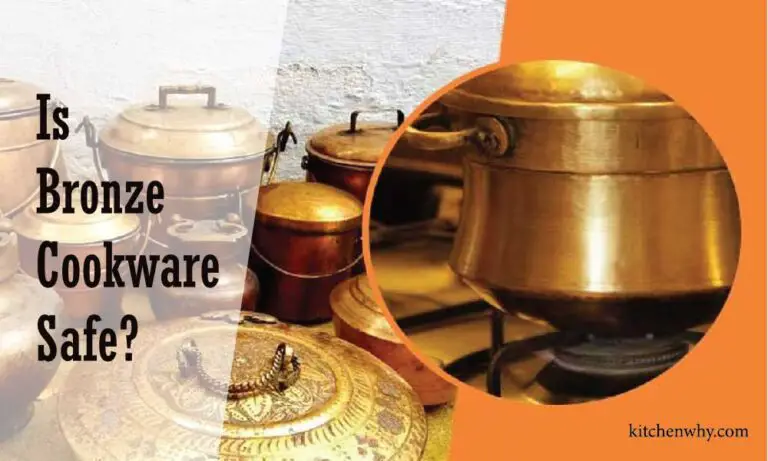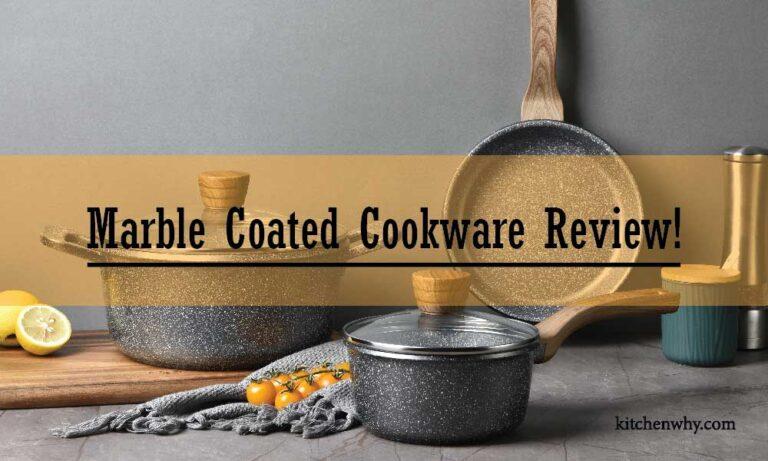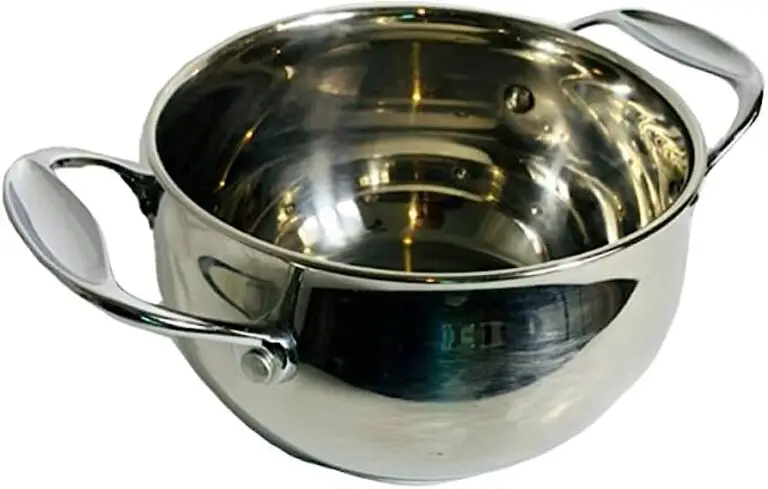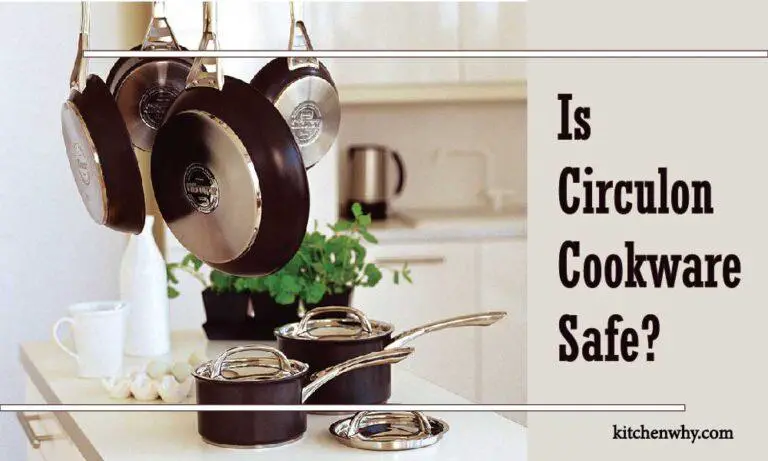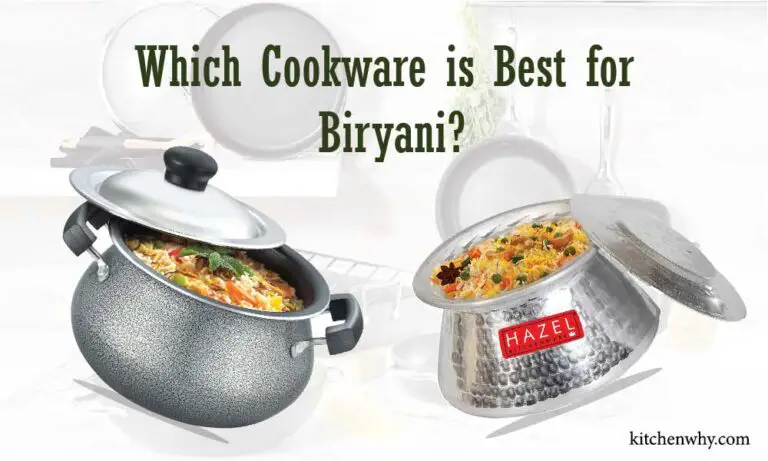Why Does My Induction Cooktop Keep Turning off: Troubleshooting Tips
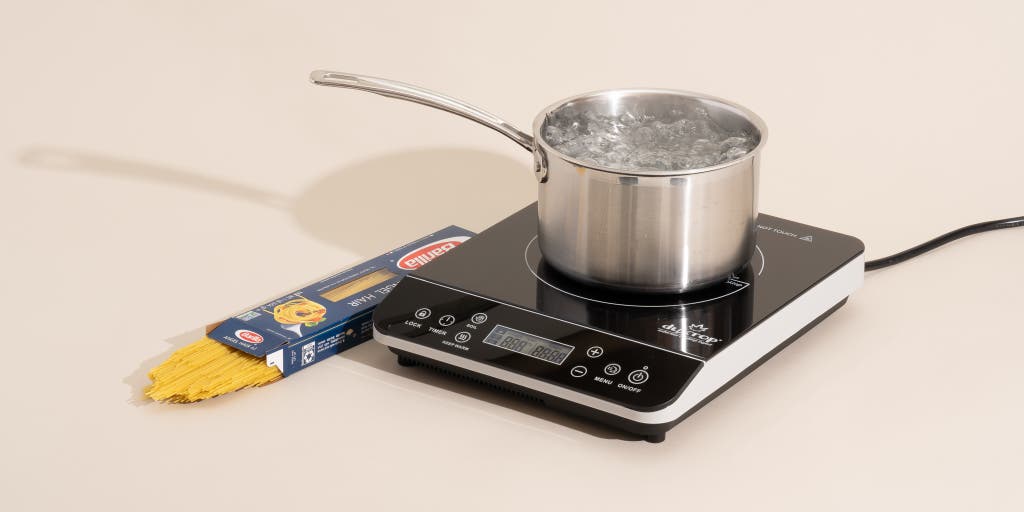
Your induction cooktop may be turning off due to overheating or a malfunctioning sensor. Understanding the cause will help you resolve the issue and ensure optimal cooking performance.
Induction cooktops are designed to automatically shut off in these situations to prevent damage and ensure safety. However, if your cooktop consistently turns off, it is essential to troubleshoot the problem. Several factors can contribute to this issue, such as incorrect cookware selection, improper installation, or a faulty cooktop.
In this article, we will explore the possible reasons why your induction cooktop keeps turning off and provide potential solutions to help you enjoy hassle-free cooking.

Credit: primeappliancerepairs.com
Understanding The Basics Of Induction Cooktops
Are you tired of your induction cooktop mysteriously turning off in the middle of cooking your favorite meals? If so, you’re not alone. Many people experience this frustration and are left wondering why it keeps happening. Understanding the basics of induction cooktops can shed some light on this issue and help you find a solution.
In this blog post, we will delve into how induction cooktops work and explore the advantages they offer over traditional cooktops.
How Do Induction Cooktops Work?
- Induction cooktops utilize electromagnetism to generate heat directly in the cookware, resulting in faster and more precise cooking.
- The cooktop’s surface remains relatively cool since the heat is generated within the pan itself.
- Induction elements have electromagnetic coils underneath the glass surface that create a magnetic field when electricity passes through them.
- This magnetic field interacts with the metal in the induction-compatible cookware, causing it to heat up and cook the food.
- The magnetic field only induces heat in ferromagnetic materials, such as cast iron or some stainless steel pans, which is why not all cookware works on induction cooktops.
Advantages Of Induction Cooktops Over Traditional Cooktops:
- Energy efficient: Induction cooktops transfer heat directly to the cookware, wasting very little energy compared to traditional electric or gas cooktops.
- Rapid heating: The electromagnetic induction process allows for quick and precise heating, reducing the time required to bring water to a boil or heat up a pan.
- Safety features: Induction cooktops have built-in safety measures, such as auto-shutoff when no cookware is detected or when excessive heat is detected, preventing accidents and making them a safer choice.
- Easy to clean: Since the surface of the induction cooktop remains relatively cool, food spillages are less likely to burn and stick, making cleaning a breeze.
- Temperature control: Induction cooktops offer precise temperature control, allowing you to easily adjust and maintain the temperature for delicate cooking techniques such as simmering or melting chocolate.
- Aesthetically pleasing: The sleek and modern design of induction cooktops adds a touch of elegance to any kitchen.
By understanding how induction cooktops work and the advantages they bring, you can make an informed decision on how to troubleshoot the issue of your cooktop turning off unexpectedly. So, let’s dive deeper into this topic and find some solutions that will ensure uninterrupted cooking bliss!
Common Causes Of Induction Cooktop Shutdowns
Having trouble with your induction cooktop constantly shutting off? It can be a frustrating experience, especially when you’re in the middle of preparing a meal. In this blog post, we will explore the common causes of induction cooktop shutdowns and provide you with some insights on how to resolve these issues.
So, let’s dive in!
Power Supply Issues
- Insufficient power supply: If your induction cooktop is not receiving enough power, it may shut off intermittently. This can occur if there are multiple appliances drawing power from the same circuit. Consider redistributing the load or using a dedicated circuit for your cooktop.
- Frequent power fluctuations: Fluctuations in power supply can trigger the cooktop’s safety feature and cause it to shut off. This can be resolved by using a voltage stabilizer or surge protector to regulate the power supply.
Overheating Protection
- Thermal overload: Induction cooktops are designed with built-in thermal protection mechanisms to prevent overheating. If the cooktop reaches a certain temperature threshold, it will shut off automatically. Ensure proper airflow around the cooktop and keep it clean to prevent overheating.
- Prolonged usage at high heat settings: Extended usage at high heat settings can trigger the overheating protection feature. Adjusting the heat levels or taking short breaks during long cooking sessions can help prevent shutdowns.
Unsuitable Cookware
- Incompatible material: Induction cooktops require cookware made of ferromagnetic materials, such as cast iron or stainless steel. Non-compatible cookware, such as aluminum or copper, will not work properly and can cause the cooktop to shut off. Ensure that your cookware has the induction symbol or is labeled as being induction compatible.
- Incorrect size or placement: Cookware that is too small or not centered properly on the cooktop’s heating element can cause uneven heating and lead to shutdowns. Use appropriately sized cookware and align it correctly on the induction zone for optimal performance.
Malfunctioning Sensors
- Dirty or damaged sensors: Induction cooktops utilize sensors to detect the presence of cookware and adjust the heat accordingly. If these sensors are dirty or damaged, they may not function properly, leading to frequent shutdowns. Clean the cooktop surface regularly and inspect for any signs of sensor damage.
Understanding the common causes of induction cooktop shutdowns can help you troubleshoot and resolve these issues quickly. By ensuring proper power supply, preventing overheating, using suitable cookware, and maintaining clean sensors, you can enjoy uninterrupted cooking experiences with your induction cooktop.
Troubleshooting Steps To Identify And Resolve Power Supply Issues
Have you ever been in the middle of cooking a delicious meal on your induction cooktop, only for it to suddenly turn off? It can be frustrating and leave you wondering what the problem could be. One common issue that could cause your induction cooktop to turn off is a power supply problem.
This can be caused by a faulty power source, a damaged power cord or plug, or even an overloaded circuit breaker or fuse. Luckily, there are some troubleshooting steps you can take to identify and resolve these power supply issues.
Let’s dive in!
Check The Power Source:
- Ensure that your induction cooktop is properly plugged into a functioning power outlet.
- Verify that there is power coming from the outlet by plugging in another device or appliance.
- If the power source is working correctly, move on to examining the power cord.
Examine The Power Cord And Plug:
- Inspect the power cord for any visible damage such as cuts or frayed wires.
- Make sure the plug is securely connected to both the cooktop and the power outlet.
- If you notice any damage, it’s essential to replace the power cord to avoid any potential hazards.
Reset The Circuit Breaker Or Fuse:
- Locate the circuit breaker panel or fuse box in your home.
- Check if any of the circuit breakers have tripped or if the fuses have blown.
- If so, reset the circuit breaker by flipping it back to the “on” position or replace the blown fuse with a new one.
Consider Using A Dedicated Circuit:
- Induction cooktops require a significant amount of power to function correctly.
- Determine if other appliances or devices on the same circuit are causing an overload.
- If this is the case, consider using a dedicated circuit solely for your induction cooktop.
By following these troubleshooting steps, you can easily identify and resolve power supply issues with your induction cooktop. Remember to always prioritize safety and consult a professional if you’re unsure about any electrical repairs. Now, it’s time to get back to enjoying your cooking adventures without any interruptions!
Addressing Overheating Protection Shutdowns
Is your induction cooktop frequently shutting off, leaving you frustrated and wondering why? If you find yourself constantly dealing with overheating protection shutdowns, there are several factors to consider. In this section, we will address ways to tackle this issue head-on and ensure your induction cooktop operates smoothly without interruptions.
Understanding The Thermal Sensors:
- Thermal sensors play a crucial role in your induction cooktop’s operation. They are designed to monitor the temperature and prevent overheating, shutting off the cooktop to protect it from damage.
- When the thermal sensors detect excessive heat, they initiate the shutdown process, interrupting your cooking.
- These sensors are highly sensitive and designed to prioritize safety; however, sometimes they can be triggered by external factors that may not necessarily indicate an actual overheating issue.
Clean The Cooktop Surface And Ventilation:
- A dirty cooktop surface can impede proper heat dissipation, leading to overheating and shutdowns. Regularly cleaning the surface can help prevent this.
- Remove any food residue, spills, or debris from the cooktop after each use to maintain optimal performance.
- Additionally, ensure the ventilation system is clean and clear of any obstructions. A blocked ventilation system can disrupt airflow and contribute to overheating issues.
Adjust The Cooking Settings:
- Cooking settings, such as power levels and cooking duration, can impact the heat produced and potentially trigger the thermal sensors.
- Consider reducing the power level or shortening the cooking duration for high-heat dishes to avoid overwhelming the cooktop and minimize shutdowns.
- Experiment with different settings to find the optimal balance between cooking performance and the cooktop’s capacity.
Prevent Overheating With Proper Ventilation:
- Adequate ventilation is crucial for preventing overheating and ensuring the smooth operation of your induction cooktop.
- Make sure the cooktop is installed in a well-ventilated area, away from walls or cabinets that may hinder airflow.
- If your cooktop is built-in, ensure there is sufficient clearance between the cooktop and surrounding surfaces to allow for proper ventilation.
By understanding the thermal sensors, keeping the cooktop surface and ventilation clean, adjusting the cooking settings, and maintaining proper ventilation, you can address and potentially resolve the recurring issue of your induction cooktop shutting off due to overheating protection shutdowns.
Stay tuned for the next sections, where we will explore additional reasons and solutions for this problem.
Ensuring Suitable Cookware For Your Induction Cooktop
Induction cooktops have become increasingly popular due to their efficiency and safety. However, you may encounter a frustrating situation where your induction cooktop keeps turning off unexpectedly. One possible reason for this issue is the use of incompatible cookware. To ensure a seamless cooking experience, it is crucial to understand the suitable materials for induction cookware, test cookware compatibility, and identify any cookware issues and alternatives.
Let’s dive into these factors in detail.
Compatible Materials For Induction Cookware:
- Stainless steel: The most compatible material for induction cooktops, stainless steel provides even heat distribution and excellent performance.
- Cast iron: Known for its durability and heat retention properties, cast iron is another ideal choice for induction cookware.
- Enamel-coated cookware: This type of cookware is typically made of cast iron with an enamel coating, combining the benefits of both materials.
- Some types of non-stick cookware: Look for non-stick cookware labeled as “induction compatible” specifically to ensure optimal performance on your induction cooktop.
Testing Cookware Compatibility:
- Perform the magnet test: If a magnet sticks to the bottom of your cookware, it is induction-compatible.
- Consult the manufacturer: Check the cookware’s packaging or the manufacturer’s website for information on its compatibility with induction cooktops. They may provide specific guidelines or recommendations.
Identifying Cookware Issues And Alternatives:
- Warped or uneven cookware: Uneven bottoms can cause poor contact with the induction surface, leading to automatic shut-off. Replace any damaged or warped cookware.
- Cookware size and shape: Ensure that your cookware is suitable for the size of your induction cooktop’s cooking zone. It should fully cover the cooking zone for optimal heat transfer.
- Aluminum, copper, or glass cookware: These materials are not induction-compatible, as they do not have magnetic properties. Consider using alternative cookware materials mentioned earlier.
Remember, using suitable cookware is crucial for a smooth cooking experience on your induction cooktop. By understanding compatible materials, testing for compatibility, and identifying any cookware issues and alternatives, you can enjoy uninterrupted cooking sessions without the frustration of your cooktop repeatedly turning off.
Resolving Malfunctioning Sensor Problems
Is your induction cooktop constantly turning off? It can be frustrating, especially when you’re in the middle of cooking a meal. One possible reason for this issue could be malfunctioning sensor problems. To help you resolve this problem, here are some steps you can take:
Identifying Sensor-Related Shutdowns:
- Check if the cooktop is displaying any error codes related to sensor issues.
- Pay attention to any unusual beeps or alerts indicating a problem with the sensors.
- Keep an eye on the cooktop’s surface to see if it gets too hot or if the sensors are not accurately detecting the cookware.
Cleaning The Sensor Area:
- Make sure the cooktop is turned off and cool before cleaning the sensor area.
- Use a soft cloth or sponge to gently wipe the sensor area with mild soapy water.
- Avoid using abrasive cleaners or scrub brushes that could damage the sensors.
- Dry the sensor area thoroughly before turning the cooktop back on.
Contacting The Manufacturer Or A Professional Repair Service:
- If the sensor problems persist despite your best efforts, it’s advisable to reach out to the cooktop’s manufacturer for assistance.
- Provide them with detailed information about the issue and any troubleshooting steps you have already taken.
- Alternatively, you can seek the help of a professional repair service that specializes in induction cooktops.
- They will have the expertise to diagnose and fix any sensor-related problems to ensure your cooktop operates smoothly.
By following these steps, you can address the sensor-related shutdowns on your induction cooktop and get back to enjoying hassle-free cooking. Remember, it’s always a good idea to refer to the manufacturer’s manual for specific instructions tailored to your cooktop model.
Additional Tips For Induction Cooktop Troubleshooting
If you’re experiencing issues with your induction cooktop constantly turning off, don’t worry – you’re not alone. This frustrating problem can disrupt your cooking process and leave you wondering what’s causing it. Fortunately, there are some additional tips for troubleshooting your induction cooktop that can help you resolve this issue and get back to cooking without interruption.
Read on to find out more.
Updating Firmware Or Software
- Check if there are any firmware or software updates available for your induction cooktop model.
- Visit the manufacturer’s website and download the latest updates, following the instructions provided.
- Updating the firmware or software can often resolve minor glitches and bugs that may be causing frequent shut-offs.
Seeking Professional Assistance
- If updating the firmware or software doesn’t solve the issue, it might be time to seek professional assistance.
- Contact the manufacturer’s customer support or a certified technician who specializes in induction cooktop repairs.
- They will have the necessary knowledge and expertise to diagnose the problem and offer a solution.
Understanding Warranty Coverage And Repair Options
- Review the warranty coverage for your induction cooktop to determine if the issue you’re facing is eligible for repair or replacement.
- If your cooktop is still under warranty, contact the manufacturer to inquire about repair options.
- They may provide a technician to fix the problem free of charge or direct you to an authorized service center.
- If the warranty has expired, consider getting repair quotes from reputable service providers to assess the cost-effectiveness of repairing versus replacing the cooktop.
By following these additional tips for troubleshooting your induction cooktop, you can take the necessary steps to address the issue of frequent shut-offs. Whether it’s updating firmware or software, seeking professional assistance, or understanding warranty coverage and repair options, you’ll be on your way to enjoying uninterrupted cooking on your induction cooktop once again.
Frequently Asked Questions For Why Does My Induction Cooktop Keep Turning Off
Why Does My Induction Cooktop Keep Turning Off?
The most common reason for your induction cooktop turning off is due to overheating or a faulty power supply.
Conclusion
To sum it up, if you find your induction cooktop keeps turning off, there are several potential causes to consider. Firstly, ensure that the power supply is stable and not experiencing surges or fluctuations. Secondly, check the cookware you are using.
Induction cooktops require compatible magnetic cookware for efficient heating and operation. Additionally, excessive heat can trigger an automatic shut-off feature, so make sure there is proper ventilation and nothing is obstructing the cooktop. If you have tried all these troubleshooting methods and the issue persists, it may be a sign of a malfunctioning thermostat or a faulty internal component.
In such cases, contacting a professional technician or the manufacturer’s customer support for assistance is recommended. Proper maintenance and regular cleaning can also prevent issues and prolong the lifespan of your induction cooktop. So, stay vigilant and enjoy the benefits of hassle-free cooking with your induction cooktop.

